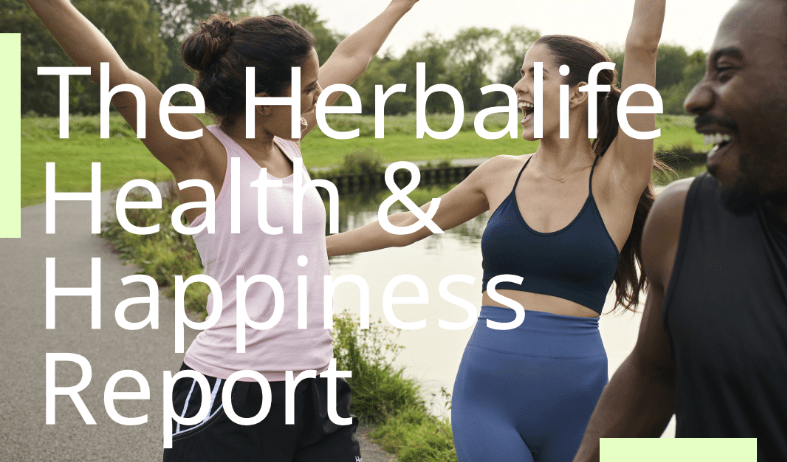
The Herbalife Health and Happiness Report, based on a survey of 1,000 respondents each in Belgium, France, Germany, Italy, Poland, Romania, Spain, Turkey and the UK, looked at people’s diets, exercise habits, sleep patterns and perceived levels of happiness – with 89% of the UK considering themselves to be happy and healthy.
The survey was carried out by IPSOS and commissioned by wellness experts Herbalife.
The report revealed Brits are the happiest and healthiest in Europe. Additionally, seven in ten adults in the UK (71%) said they feel ‘happy’, ‘content’ or ‘enthusiastic’ about their wellbeing and reported exercising the most (45% state they exercise more than three times a week) – followed by Spain, while Poland and Germany ranked the lowest. The UK also claimed to have the best work/life balance at 51% – above the survey average of 46%. Interestingly, the two countries that ranked lowest in this category, France and Germany, already have ‘anti-burnout’ legislation in place. In Germany this includes capped working hours and strict rules about working on Sundays, while in France, the ‘right to disconnect’ laws have made it illegal to contact employees out of working hours.
Generational Differences
In the survey, younger people perceived themselves to be healthier which then decreased with older generations. In fact, 83% of the Gen Z demographic in the UK considered itself ‘somewhat’ or ‘very healthy’ while only 60% of Baby Boomers believed the same. Interestingly, exercise habits changed with age with gym memberships declining significantly with older age, according to the findings.
Looking at what makes us happy, there were slight differences between each generation. At 39%, Gen Z said that ‘better health’ was a key driver to their happiness, falling slightly to 34% with Baby Boomers which was 10% below the European average for this demographic. ‘A change to my physical appearance’ (i.e. losing weight) was more important for younger people, suggesting that Gen Z might also look at wellbeing aesthetically and less holistically.
Redefining Supplements
The use of nutritional supplements suggested a change in how we’re approaching wellness. A significant 74% of respondents in the UK said they used supplements for general health with 44% of the 25 to 34 age group emphasising their importance for mind and mood – a possible indication that we now see supplements as no longer solely the domain of fitness fanatics. Meanwhile, the findings also highlighted a possible lack of awareness in younger people to ‘prevent and protect’ at all stages of life.
Changing Eating Habits
Traditional eating patterns are changing. Only 33% of those polled thought that eating the traditional three meals a day was key to a healthy, balanced diet. This suggested a shift towards eating more frequently throughout the day but in smaller quantities, including ample fruit and vegetable intake, hydration and the right balance of protein, carbohydrates and fat. The data also revealed a knowledge gap about plant-based food with only 18% thinking that it could contribute to a healthy diet.
The Snacking Dilemma
The findings also highlighted the need for healthier snack options. Just 16% of UK respondents said that they stick to a healthy, balanced diet while 6% said that they rarely or never do this. In fact, one in two people polled in the UK (50%) reported they don’t eat enough fruit and vegetables, significantly more than the European average (40%).
Community is Important
Almost half (45%) of those from the UK exercised regularly (more than three times a week) which was the highest rate compared to the other countries surveyed. However, how we’re exercising appears to be changing; while the pandemic saw many of us exercising alone, post-COVID there’s been a resurgence of ‘togetherness’ with ‘connection’ and ‘community’ cited as integral to wellness. The data reinforced this, with 41% saying that they have a gym membership because they like being in a group setting and the motivation that having others around them brings, while 46% like the community aspect.
SHARE THIS:

Leave a Reply